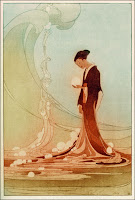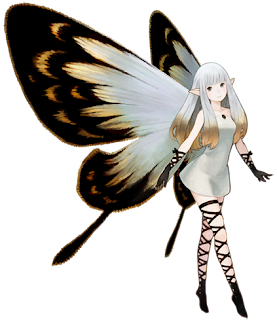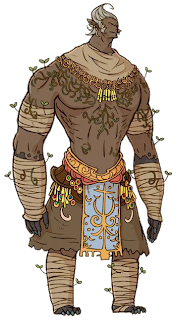Thinking about running 5e again, probably for San Serafín.
In 5th edition, if you want to play a nature character, you can pick one of the following.
- Druids
- Nature Clerics
- Nature Paladins
- Rangers
- Barbarians (some barbarians are extra nature-y. don’t get those ones confused with the barbarians that are extra angry)
- Fighters with Survival, Nature, and Animal Handling skills
These do have various amounts of hippy and a broad range of mechanical differences, but explaining them even to a very engaged, interested player is KIND OF A LOT. I am playing a 5e game where it took a player three sessions before she could regularly remember if her class was a wizard, warlock, or sorcerer, and that makes sense. You have to dig through the book to really get the differences–there’s nothing about the names that really let you know how they actually work. SO, I’m crushing down the class list to four and then rewriting archetypes to cover a wider range of characters.
FIGHTERS are slashy smashy stabby types. (Paladins, Rangers, and Barbarians are getting collapsed into fighter). Monks, too, probably.
- Champions: You fight more better
- Barbarian/Ranger: Ferocious Conan type, also pretty good out in the wilds
- Paladin: Knightly righteous dude, can cast some spells.
WARLOCKS are witchy and wild and traffic in gods and monsters. (Clerics and Druids are getting collapsed into warlock). They can learn to Wild Shape as a Pact Boon and can choose the Pact of Many Gods for a animist/priest/medium type deal. I’ll probably write a patron for a benevolent Abrahamic deity type.
ROGUES are thieves and assassins.
WIZARDS are scholarly magic types.
Sorcerers, Bards, and maybe Monks are out.
Fighter Martial Archetype: Paladin
THIRD LEVEL
Spellcasting. When you reach third level, you can cast cleric spells.
Cantrips. You learn two cantrips of your choice from the cleric spell list.
Spell Slots. The Paladin spellcasting table shows how many spell slots you have to cast spells of 1st level and higher. To cast one of these spells, you must expend a slot of the spell’s level or higher. You regain all expended spell slots when you finish a long rest.
Spells Known of 1st level and higher. You know three 1st level cleric spells of your choice. The Spells Known column on the Paladin spellcasting table shows when you learn more cleric spells of 1st level or higher. Each of these spells must be a level for which you have slots. When you gain a level of Fighter, you can replace one of the cleric spells you know with another spell of your choice from cleric spell list that you have slots for.
Spellcasting ability. Wisdom is your spellcasting ability for your cleric spells. You use your Wisdom whenever a spell refers to your spellcasting ability. In addition, you sue your Wisdom modifier when setting the saving throw DC for a cleric spell you cast and when making an attack roll with one.
Spell Save DC = 8 + proficiency bonus + Wisdom modifier
Spell Attack modifier = proficiency bonus + Wisdom modifier
Sense Evil and Good. You know if there is an aberration, celestial, elemental, fey, fiend, or undead within thirty feet of you, as well as its general direction.
SEVENTH LEVEL
Weapon Bond. At 7th level, you learn a ritual that creates a magical bond between yourself and one weapon. you perform the ritual over the course of 1 hour, which can be done during a long rest. The weapon must be within your reach during the ritual, at the conclusion of which you touch the weapon and forge the bond.
Once you have bonded the weapon to yourself, you can’t be disarmed of that weapon unless you are incapacitated. If it is on the same plane of existence, you can summon that weapon as a bonus action on your turn, causing it to instantly teleport to your hand. For purposes of damage immunity, your bonded weapons counts as magical.
You can have up to two bonded weapons, but can summon only one at a time with your bonus action. If you attempt to bond with a third weapon, you must break the bond with one of the other two.
TENTH LEVEL
Divine health. You are immune to disease. You have advantage on saving throws against being poisoned and gain resistance to poison damage.
FIFTEENTH LEVEL
Taboo. You can issue a divinely enforced edict, preventing all around you from breaking a rule of your creation
When you use this ability, you shout a one-word command. All creatures in earshot must make a Charisma save vs your spell save DC every time they attempt to perform that action. If a creature fails their saving throw, they cannot attempt to perform that action again until the beginning of their next turn. This lasts until you lose Concentration or move from the spot you created the taboo.
You must take a short rest before you can use this ability again.
EIGHTEENTH LEVEL
Occult resistance. You have advantage on saving throws against all spells.
Warlock Abilities
Patron: The Many Gods
You have formed a pact with a minor deity: a beast, dragon, elemental, fey, fiend, or aberration with some measure of immanence. They cannot provide you with the kind of power an Archfey, Fiend, or Great Old One can, but they are also willing to help you personally–you can help them as much as they can help you.
You can summon one of your patrons with a 10 minute ritual. You can ask it to cast a spell it knows or to perform some other favor, like convey you to a destination, help you in a fight, deliver a message, or retrieve an object. Patrons always require something in return–they feed off of occult power, and you can always expend a spell slot as payment, but they also accept the expenditure of hit dice, blood, favors, treasure, or anything else that aligns with their ethos and goals. More powerful patrons require more sacrifice. Patrons are NPCs like any other–there is always a chance they will demand more for a favor, refuse to help you, or even temporarily become hostile.
You do not learn spells of 1st level or above. Whenever you would learn a spell, you can give the ability to cast it to one of your patrons. Patrons can cast such spells at will at your behest, enabled by your payments/sacrifices, but when operating on their own prerogative can only cast each spell they know once per long rest.
You start with a single patron. It is a beast, dragon, elemental, fey, fiend, undead, celestial, or aberration with a CR of 1 or less. It can cast your Spells Known at level 1.
When one of your patrons is reduced to 0 HP, you can revive it with an 8 hour ritual.
You can gain a patron by establishing friendly contact with a creature and completing a 1 hour ritual in its presence. You can always understand you patron, even if you do not share a language or it does not have a language.
Warlock Pact Boon: Pact of Borrowed Skin
You can use the Druid’s Wild Shape class feature once per short rest.
Warlock Eldritch Invocations
Shapeshifter
Prerequisite: Pact of Borrowed Skin, 5th level
You can Wild Shape into creatures with a CR of 1/4 your level or less.
Maleficence
Prerequisite: Pact of Borrowed Skin, 15th level.
You can Wild Shape into dragons as well as beasts.























